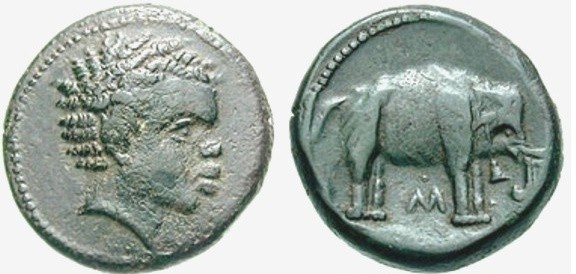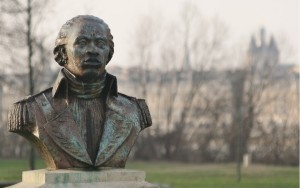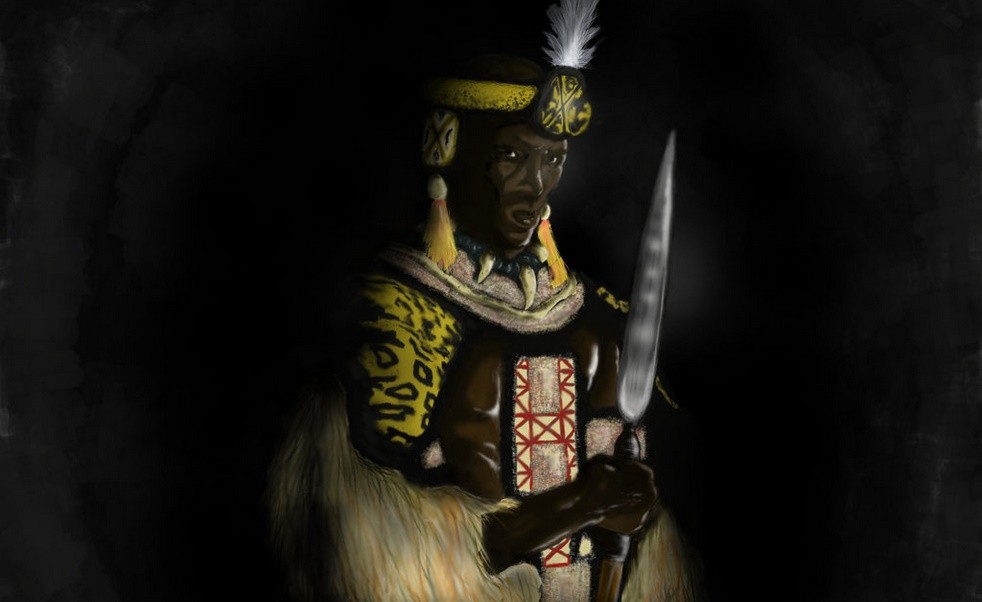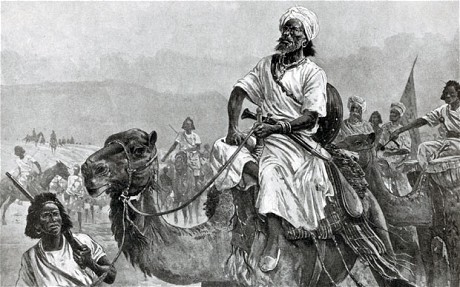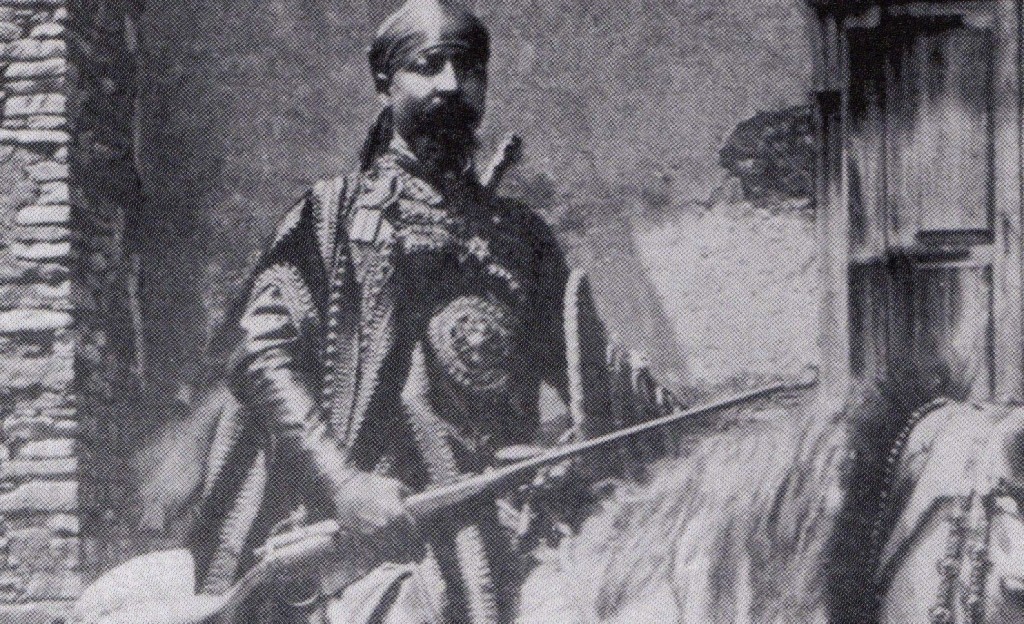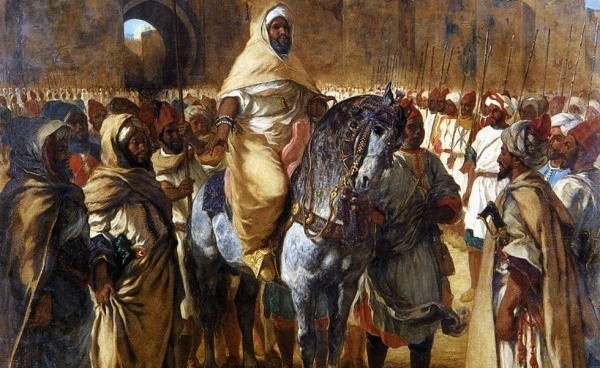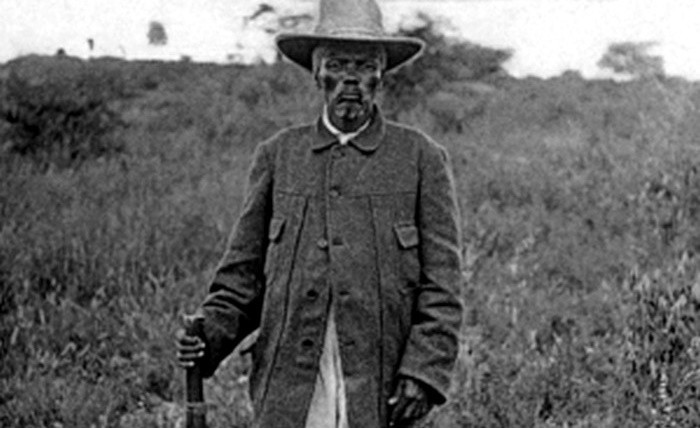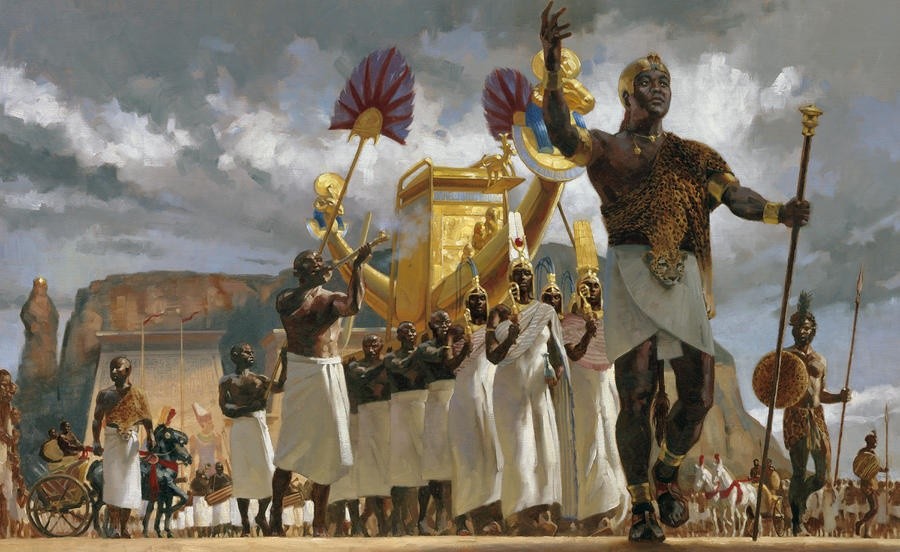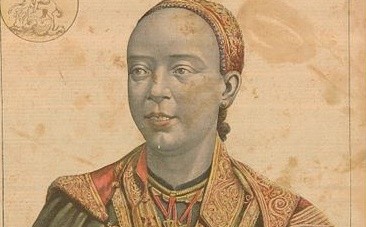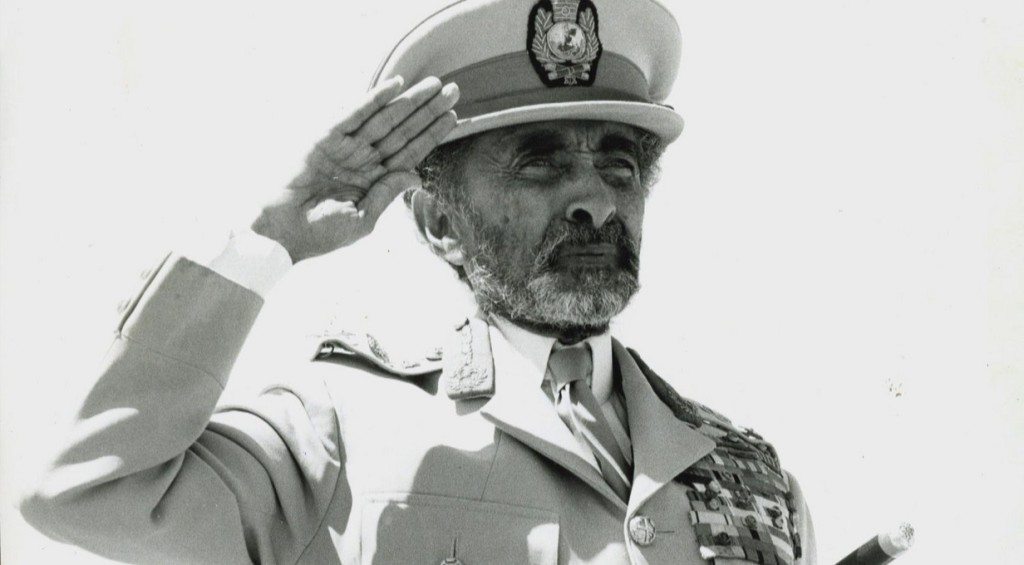During the European conquest in Africa, they ruled the continent but not without any form of challenge or counter attacks. They came, conquered and finally left, but still not without a fight. Before their coming we had our forms of civilization, we existed and lived our lives in our own way, the way we’ve always known; the ways that has always worked for us. Then they came to disintegrate our mode of administration through dubious and forceful means. While some yielded easily to their schemes, some others did not; they rather fought vehemently to preserve and stamp the authority of the African people in their respective areas. These are African patrons, those who didn’t give up no matter what; people of valor who felt slighted and insulted to be ruled over by foreigners who should logically be living according to our own dictates since they were in our land; those who even in death did set the pace for eventual freedom of their people, those who were undeterred in the face of challenge or even defeat.
They stood their grounds against all odds and were sternly against foreign invasion. Their strength and impact in the times past continually served as a source of motivation for the African fighter in the generations to come, to never give up on motherland; to defend her no matter what. They are the people who gave it their all, blood, sweat and life to ensure the freedom of their people. One good thing about the history of these past heroes is that the recent generation gets to see hope and the need to be as brave as expected in matters of patriotism and integrity.
1. Hannibal Barca (North Africa)
Hannibal Barca is an African Warrior known for his strength and exploits in the battles against the invasion of the continent. He was also known for his battalion of tamed elephants and is generally acclaimed as one of the greatest warriors to have lived in African history. Hannibal has a history of warriors in his lineage. He was the son of the Carthage commander during the First Punic War, Hamilcar Barca. One of his brothers Maharbal was captain of Hannibal’s Calvary. At 17 he took to the arts of the battlefield, after his father’s death. His leadership qualities also captivated and typically moved elephants to his direction and instructions. I guess they were also part of the army. He has been described as wise, fearless, relentless, in fact, he is remembered as the war lord with a difference; one of a kind. He was a seasoned leader who had the right words to motivate his troop during the second Punic war in the Alps. For 15 years he had victory in several battles; failures did not put him down as seen when he lost thousands of soldiers in the Roman battle. He kept on keeping on, and that yielded unprecedented victory for him and his people.
2. Toussaint L’Ouverture “Black Napoleon” (Haiti)
Black Napoleon as fondly called is the famous military commander whose talent and skills threatened the European invaders. He particularly spearheaded the Haitian revolution in the late 18th century. He was born in 1743 to an educated slave. He resisted the Saxons- a confederation of Germanic tribes on the North German Plain. He gallantly fought for their freedom, employing every positive tactic to achieve freedom. By 1795, he had made significant successes in the Haitian fight for freedom. He started his career as a military commander in the French colony of Santo Domingo (capital of the Dominican Republic) as the leader of a revolution. He trained his contingent on the skills of Guerrilla warfare, which seemed to be an option that worked in their favor. Toussaint L’Ouverture is a man of valor; he did a lot in his reign to fix the economy and security of the people. He was a staunch Roman Catholic who detested slavery and gave the fight for the Haitian freedom all of him. He is remembered for being a strategist, visionary, formidable intellectual and warrior with keen political acumen; he was a disciplinarian to the core. In his relations with his rivals, he was smartly discrete about his directions and intentions. Just like Mandela did in South Africa, Touissant preached reconciliation and believed that African-born blacks had to tolerate and learn from Europeans and mulattoes in the colony. Napoleon’s faith in the eradication of racial tensions and slavery, as well as his firm foundation in the training of his Guerrilla troop helped the colony to resist attempts of French invasions even after his death in 1803.
3. King Shaka Zulu (South Africa)
Think of Shaka and you have a mental picture of flying spears and arrows in a war arena. Shaka was spectacularly good at wars, in fact he was ALWAYS ready for it, his fighting proficiency and bravery cannot be underestimated. At the age of 23, the future king and hero, Shaka, was drafted into war, under the tutelage of Dingiswayo- an Mthethwa chieftain. He was born in 1787; and later became the greatest of kings in the Zulu kingdom. He is renowned for his Waring strategies – devised all sorts of revolutionary means to rid the invaders in his territory – sometimes he was diplomatic, some other times he was just plain crude. His reign witnessed changes and advancements in the economy of the people. Shaka was a one of a kind monarch in the Zulu kingdom. He was no coward.
4. Said Mohamed Abdulla Hassan (Somalia)
Right in the middle of Jijiga town, is the statue of Said Mohamed Abdulla Hassan. He was a Somalian military commander who fought against the European and Moorish invaders in the Horn of Africa. He hailed from Ogaden , Somalia; born in 1856 and died in 1920 after long years of battling for freedom and resisting the British, Italian and Ethiopian invaders. He learnt from the best – his maternal grandmother, who was a warrior chief, Sade Mogan. Mohamed was a devout Muslim; it is believed that at the age of 11, he had mastered the entire Quran by heart. He sure was an authoritarian and for certain, a religious radical who strongly believed that all infidels must perish. Unlike the Black Napoleon, “Mad mullah” seriously discriminated against other religious sects, thanks to the numerous fanatics he mingled with at a tender age. Some describe his hatred towards other religion as venomous. Let’s say he was an extreme chauvinist as those who opposed his ideology – religious or national were seriously punished. His intense spirituality led to the establishment of the Dervish State which was later defeated by the British imperialists. Mohamed will non-apologetically resort to violence to achieve his purpose. He was controversial for his fighting and leading techniques, to the point that his resilience earned him the nickname of “mad Mullah” by the British. In the midst of all his shortcomings his character definitely did good in the context of resisting the foreign invaders. He found a course and fought for it tirelessly to the end.
5. Ras Mengesha Yohannes (Ethiopia)
Ras Mengesha Yohannes, is a significant character in Ethiopian history. He grew up as the nephew of the king but later discovered he was an heir to the throne. Domestic disagreements robbed him of the privilege to be the next emperor, thus he lost the throne to Emperor Menelik. Irrespective of his unresolved issues with Emperor Menelik, he fought significant battles against the Italians during his (Menelik) reign, commanding about 12000 infantry during the Adowa Battle. His chivalry contributed to the defeat of the Italian invasion in 1896. He also ensured the restoration and improvement in the economy of his people, particularly the resuscitation of the right to importation in Ethiopia. Regardless of his efforts to the reign of the king and the good of the people, Menelik refused to crown him King of Tigray, and further imprisoned him for his consequent revolt against him. Yohannes died but was never forgotten in the history of Ethiopian independence.
6. Tariq ibn Ziyad (Sudan)
Two things – Gibraltar and the conquest of Visigothic Hispania and Tariq comes to mind. He is described as a man of simplicity; believed in equality and justice. He was a Berber warrior, an Islamic general known for commanding a 7000 Berber and Arabian soldiers to the Visigothic Hispania war. In alliance with grieved Julian, commander of the Visigothic fortress, he fought against King Roderic who also led 35,000 soldiers to the battlefield. Tariq promoted Islamic religion and faithfully counted on it to conquer the European invaders. He burnt down their own ship, and said to his army,
“Brothers in Islam, we now have the enemy in front of us, and the deep sea behind us, we shall now either defeat the enemy and win or die a coward’s death by drowning in the sea, who will follow me? “
In other words, he made it clearer to his troop they were there to either die fighting or win. The battle lasted for 8 years and they won after all. From that moment of conquest, he further penetrated into the European territories, still winning. Defeating King Roderic is one of the most significant victories in Islamic history.
7. Hendrik Witboii (Namibia & South Africa)
Hendrik comes from a lion-hearted lineage- fearless men who were charismatic leaders with finesse and initiative. His family of leaders was conspicuously prominent in the Nama tribe. Hendrik is an influential figure who promoted unity in his tribe during his reign as the Nama chief, a title and position that has been in the family. His grandfather, uncles and father were all chiefs of their tribe; it’s was not surprising that he would be in that position too. As a tribute for being a patriotic fighter, he was inducted in the Heroes’ Acre in 2002, his image is also imprinted on the Namibian currency. Like other ancient African commanders, he also trained and led a Guerrilla army to combat the foreign invaders in the land. The Namibian national hero and revolutionary Captain Hendrick Witboii led his people into South West Africa in 1885 in an effort to resist the German colonization there. Hendrik was an educated visionary who believed he had a calling to lead his people to liberty. He believed and tirelessly worked towards it, laying a foundation of courage for the younger generation and those to come.
8. Taharqa (Sudan & Egypt)
Taharqa, a kushite, ruled a dynasty that covered a part of Ethiopia, Sudan and the whole of Egypt. He comes from a lineage of kings, and though defeated twice in Egypt, his marks are still recorded in history. His success instilled peace in the land. He is most recognized as the sponsor of fascinating constructions in Memphis and Thebes; his monuments are apparently evident in the whole of Egypt. Adding to that is his historical relationship with the Assyrians, one that later cost him defeat. His valor is seen in his ability to coordinate his troop, the strongest of all at that time. From Biblical records- Taharqa is identified as Tirhakah, King of the Ethiopians in the Bible, who led the army that fought against Assyria’s Sennecherib during the reign of King Hezekiah of Judah (2 Kings 19:9-19; Isaiah 37:9-14).
9. Empress Taytu Betul (Ethiopia)
Taytu was a female war lord and wife of the Ethiopian Emperor, Menelik II of Ethiopia (after several failed marriages). Who would have thought that a woman was up to the task of defending the integrity of Africa, not just by supporting incognito but right there and then in the battlefield? She participated fully in the Adowa Battle of 1896. She commanded around 3000 infantry and 6000 cavalry against the Italian invaders. Taytu was a queen consort of the Ethiopian dynasty but more significantly she was a courageous woman of daunting strength; she wielded a huge amount of influence and political power. She did not only enjoy the benefits of being wife to the Emperor but she also shared in their challenge as partners. As a co-social ranker with the king, she did not shy away from obvious responsibilities, regardless of her gender, she took to the war weapons and her horse, and was good to go. Taytu Betul was born in the mid 19th centuries (1851), to an aristocratic Ethiopian family that is believed to have ties, traceable to Solomonic dynasty; she obviously had the royalty blood flowing in her veins. During the regency of the next emperor, Ras Tessema Nadew, her influence gradually fizzled out as she was restricted by the failing health of the emperor, Menelik II, her husband. It is recorded that even behind the political scene, she still radiated indescribable authority and power to manipulate one or two things. She died in Addis Ababa and was buried next to her husband.
10. Hailey Selassie (Ethiopia)
Hailey is an Ethiopian military commander; the 225th and last Ethiopian Emperor. He was born in July 23, 1892, and crowned king in 1930, believed to be a descendant of King Menelik I. Hailey fled to exile during the second World war, after commanding the army that resisted the Italian invasion. From his being reinstated as king of Ethiopia, he ruled for years till the 1974 when he got overthrown by the Marxist dictator Mengistu Haile Mariam. The coup was a result of the hopeless situation of famine and unemployment; his opposition capitalized on these circumstances to topple his government. Hailey had the dream to modernize Ethiopia through educational and socio-economic reforms.

